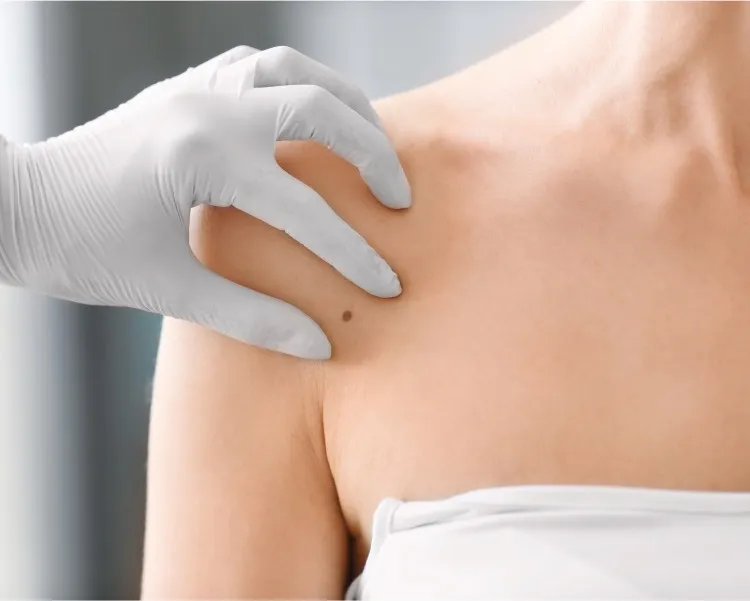In celebration of our newest Sapphire Dermatology location in Reston, VA, we're excited to offer exclusive specials at both of our locations.
In celebration of our newest Sapphire Dermatology location in Reston, VA, we're excited to offer exclusive specials at both of our locations.
Biopsies services offered in the greater Silver Spring, MD and Reston, VA area
Biopsies are an excellent tool for skin cancer screening, and a service available from Kunal Angra, MD, Divya Angra, MD, and the team at Sapphire Dermatology. With offices in Silver Spring, Maryland, and Reston, Virginia, the practice is here to help when you need a biopsy. Booking a visit is as simple as a phone call or a few moments online, so don’t delay.


Biopsies
A biopsy is a diagnostic procedure that requires a small sample of tissue. This tissue is examined and tested to look for signs of disease. While biopsies are most commonly associated with cancer, they can also detect numerous other skin conditions.
Your dermatologist or other health provider might recommend a biopsy based on the unusual appearance of an area of your skin. Biopsies are sometimes used as an additional screening tool, even when practitioners are fairly certain of a diagnosis.
It’s important to note that you don’t have to wait for your annual skin check visit to receive in-depth diagnostic services. No one knows your skin better than you, so if you notice changes or are worried about an unusual growth on your skin, call Sapphire Dermatology to book a diagnostic workup.
You begin by removing any clothing in the area of the biopsy. Once you’re resting comfortably, your dermatologist disinfects the area. You will receive an injection of a local anesthetic to eliminate sensation in the area of focus.
Your practitioner then uses a special tool to remove a small portion of tissue. One approach shaves away a thin layer of cells, while others punch out a small plug of skin, scrape a skin growth, or cut a small section of tissue.
Depending on the volume of tissue removed, you might need sutures to close your skin after a biopsy. Your dermatologist provides detailed instructions on how to care for the wound. Be sure to follow those guidelines to minimize scarring and reduce the risk of infection.
The tissue is sent off to a lab where highly skilled technicians search for signs of abnormality.
Once your results are back, your dermatology team lets you know. If your results are negative, there is usually no need for further action. If your results are positive, you’ll discuss the next steps.
If you need a biopsy, there is nothing to fear. Reach out to the office online or over the phone to book your visit.

If you do not see your insurance provider, please contact us for additional information!
Sapphire Dermatology